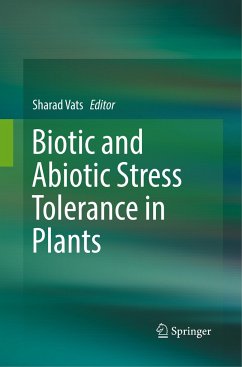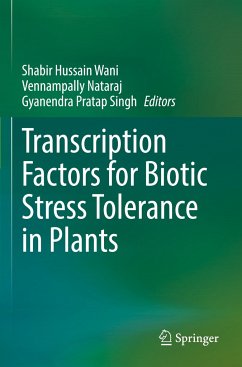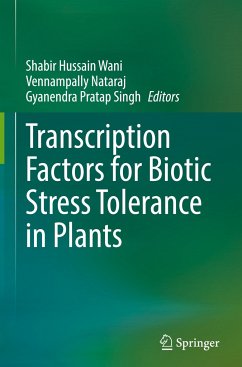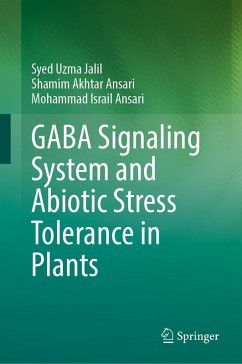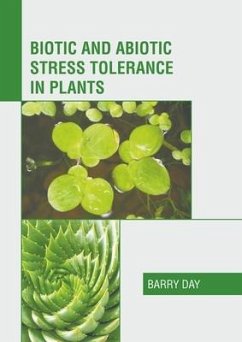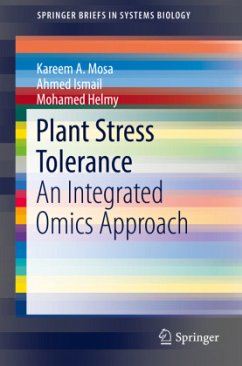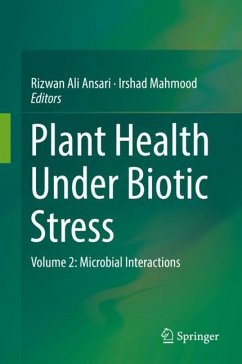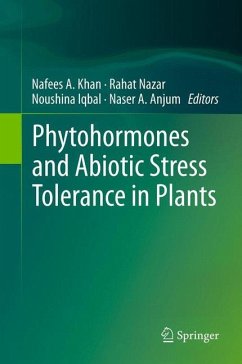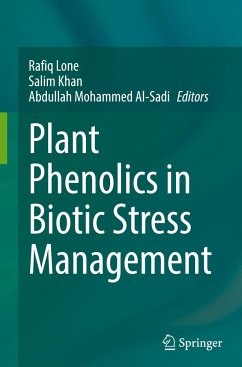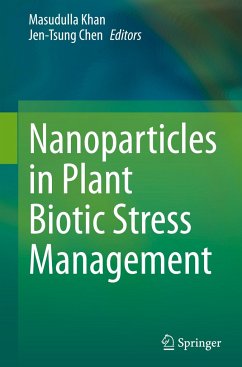
Biotic and Abiotic Stress Tolerance in Plants

PAYBACK Punkte
65 °P sammeln!
This book highlights some of the most important biochemical, physiological and molecular aspects of plant stress, together with the latest updates. It is divided into 14 chapters, written by eminent experts from around the globe and highlighting the effects of plant stress (biotic and abiotic) on the photosynthetic apparatus, metabolites, programmed cell death, germination etc. In turn, the role of beneficial elements, glutathione-S-transferase, phosphite and nitric oxide in the adaptive response of plants under stress and as a stimulator of better plant performance is also discussed. A dedica...
This book highlights some of the most important biochemical, physiological and molecular aspects of plant stress, together with the latest updates. It is divided into 14 chapters, written by eminent experts from around the globe and highlighting the effects of plant stress (biotic and abiotic) on the photosynthetic apparatus, metabolites, programmed cell death, germination etc. In turn, the role of beneficial elements, glutathione-S-transferase, phosphite and nitric oxide in the adaptive response of plants under stress and as a stimulator of better plant performance is also discussed. A dedicated chapter addresses research advances in connection with Capsicum , a commercially important plant, and stress tolerance, from classical breeding to the recent use of large-scale transcriptome and genome sequencing technologies. The book also explores the significance of the liliputians of the plant kingdom (Bryophytes) as biomonitors/bioindicators, and general and specialized bioinformatics resources that can benefit anyone working in the field of plant stress biology. Given the information compiled here, the book will offer a valuable guide for students and researchers of plant molecular biology and stress physiology alike.





